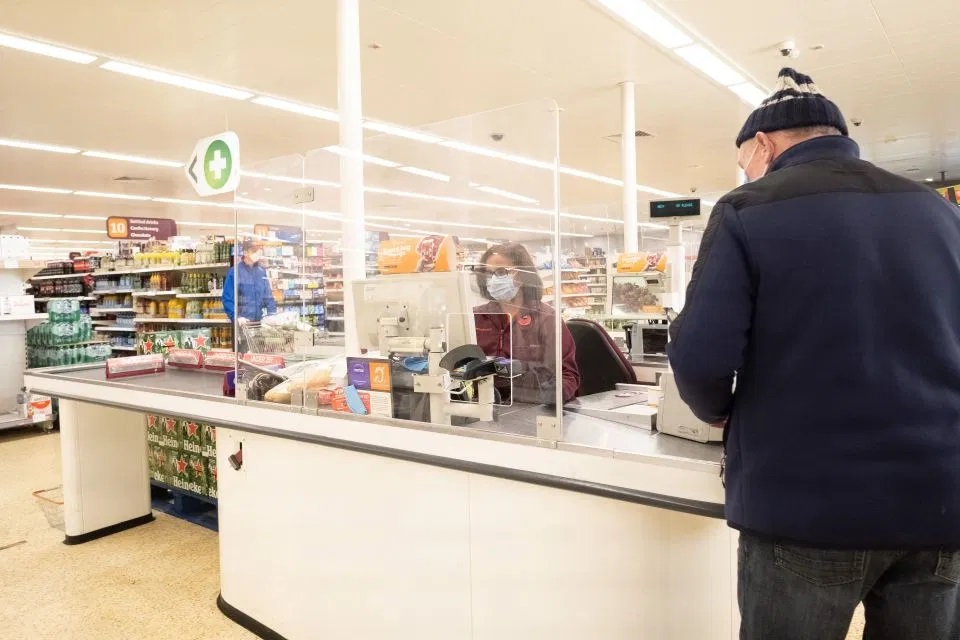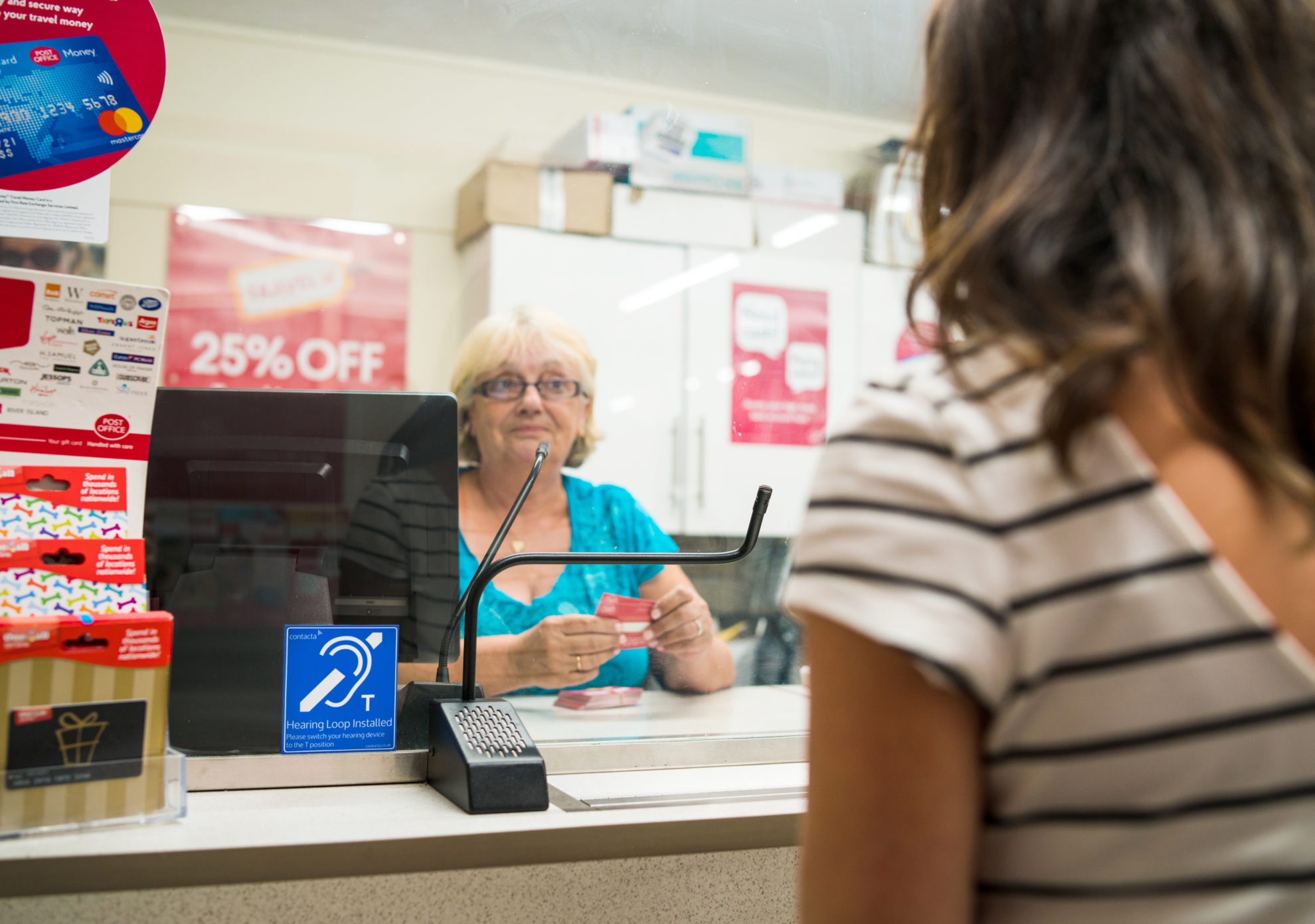
28 Apr Coronavirus crisis redefines means of safety & accessibility
The continued global pandemic in 2020 has triggered an unprecedented reaction by businesses. Adapting to new safety measures has become critical for service providers endeavouring to keep business going, while protecting staff and customers. Among the measures taken, the concerns about social distancing and possible infections have led to supermarkets, transport hubs, hospitals, pharmacies and banks installing protective screens at service desks.
Initially, these were erected as a quick ‘overnight’ solution, but they are starting to be replaced by more durable structures. It is probably safe to assume that a supermarket till or an airport check in desk will look very different in the aftermath of COVID-19.
 New awareness drives design change
New awareness drives design change
The growing awareness of the threat of infection means new safety measures could remain for years to come. Considerations of contagion due to proximity to other people as well as the need for increased levels of sanitation and hygiene will drive structural changes at service points.
A safety measure, a communication hurdle
The new protective screens may be an effective means of safety, and they may also be integrated into service points in a cohesive way however, they do create a barrier for the transmission of clear sound. Evidence shows that screen barriers mask high frequency sounds and reduce overall sound levels. This is especially noticeable in areas with high ambient noise such as supermarket tills, a busy hospital reception or airport check-ins. A muffled sound makes transactions difficult and impacts customer satisfaction. Service providers therefore must consider good sound transmission as an integral part of the safety measure.
Contacta Speech Transfer systems have evolved over many years of experience and can be integrated into every design, delivering excellent sound quality.
Contacta systems enable sound transmission through protective screens or other barriers. The systems feature robust, long-lasting construction and open duplex technology promoting crystal-clear hands-free voice reproduction. A full optimisation according to conditions on site at installation ensures sound is always on, eliminating the need to touch any buttons, thus diminishing the transmission of viruses and bacteria.
transmission through protective screens or other barriers. The systems feature robust, long-lasting construction and open duplex technology promoting crystal-clear hands-free voice reproduction. A full optimisation according to conditions on site at installation ensures sound is always on, eliminating the need to touch any buttons, thus diminishing the transmission of viruses and bacteria.
The challenge of being accessible
Apart from forming a sound barrier for customers with normal hearing, the situation for millions of people with hearing loss is far worse. A deteriorating hearing loss due to age or medical condition affects the ability to hear high frequency sounds, making sounds muffled, especially in conversations.
We are also seeing staff at service points being instructed to use face masks. Covering the mouth prevents deaf or hearing-impaired people from using lip reading as a tool to assist with understanding conversations.
The protective barriers are therefore a much bigger problem for people with hearing loss, resulting in a stressful experience which could result in avoidance of further visits.
All models of Contacta Speech Transfer systems include an integrated hearing loop, designed especially to help hearing aid users communicate clearly. A microphone on the staff side picks up the member of staff’s voice, which is then transmitted via the hearing loop aerial directly to the user’s hearing aids. Not only does this overcome the problem of the mouth being hidden, it also means all surrounding noises are cut out, and clear conversation is heard through the system.
Contacta counter loop systems are also available for use at services positions where speech systems are not required.
Click Here to see the full range of Contacta Speech Transfer Systems.

 MADE IN THE UK: We’re proud to say our Contacta designed products are manufactured in the UK
MADE IN THE UK: We’re proud to say our Contacta designed products are manufactured in the UK